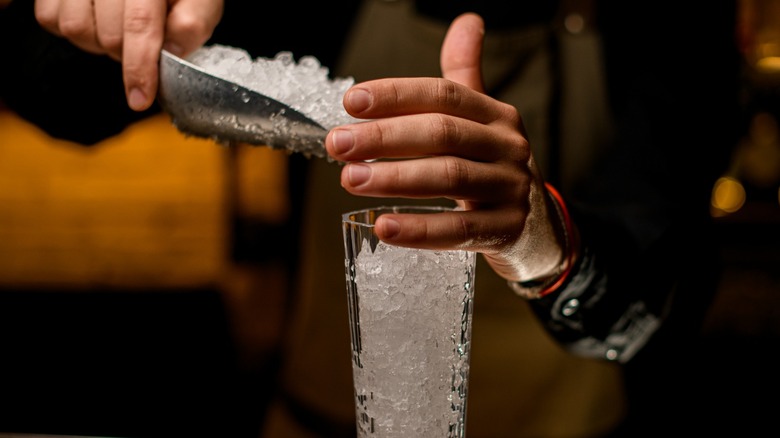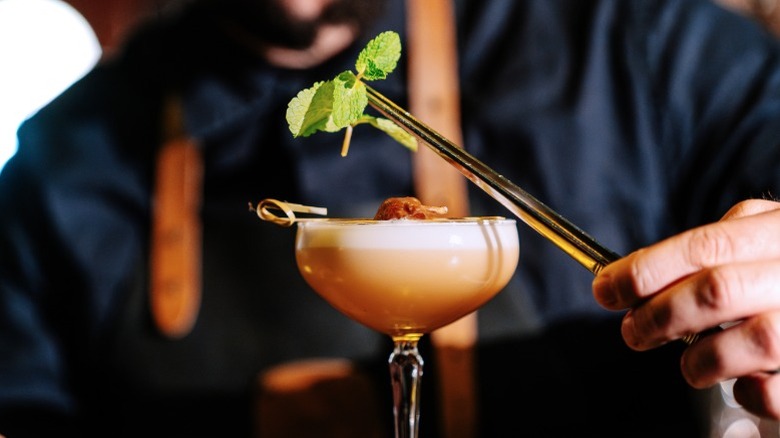The Ice Cube Red Flag To Watch Out For At Bars
Call it a lack of respect or utter carelessness, but touching ice cubes is one of the biggest red flags when it comes to bartending hygiene. Although it seems like an innocent mistake during the busy rush on Friday night, it's actually a cardinal sin that puts the health and safety of patrons at risk.
When choosing ice for cocktails, most bartenders will grab a pair of tongs to place large cubes or an ice sphere in a drink to avoid contact. Or they'll use a scooper to slosh ice into a glass or shaker. However, if bartenders use their hands, bacteria could be transferred from their skin to the ice to the patron's glass and potentially make someone sick. Additionally, a bartender should never dip the glass directly into the ice machine. If the glass breaks in the ice bin, the ice is contaminated and could harm guests if it is used. If you notice a bartender committing these ice fouls, you have two options: refuse the cocktail and ask for a new one, or make a beeline for the exit.
Other warning signs at the bar
Although touching ice is definitely a no-no at the bar, it's not the only red flag. When you sit down, pay attention to the surface of the table, counter, and even the chairs. If they are clean, neat, and dry, the staff likely prioritizes cleanliness and keeps up with rapid customer turnover. However, if you notice the surfaces are sticky, there's a good chance they haven't been cleaned recently.
Another red flag to watch out for is the state of the barware. Tools — like a cocktail jigger for measuring ingredients, a shaker, or a bar spoon — should be cleaned after each use to minimize cross-contamination of ingredients and to ensure the purity of each drink. Speaking of drinks, check out the glass your cocktail or beer is served in. If you notice smudges or a cloudy film instead of a crystal-clear interior, it's possible that the glass hasn't been washed properly — you're within your rights to ask for a clean replacement. One last tip: Make sure the bartender uses tongs, tweezers, or clean hands when garnishing a cocktail. This prevents the spread of harmful bacteria and ensures that they're following health and safety standards to keep patrons safe.

